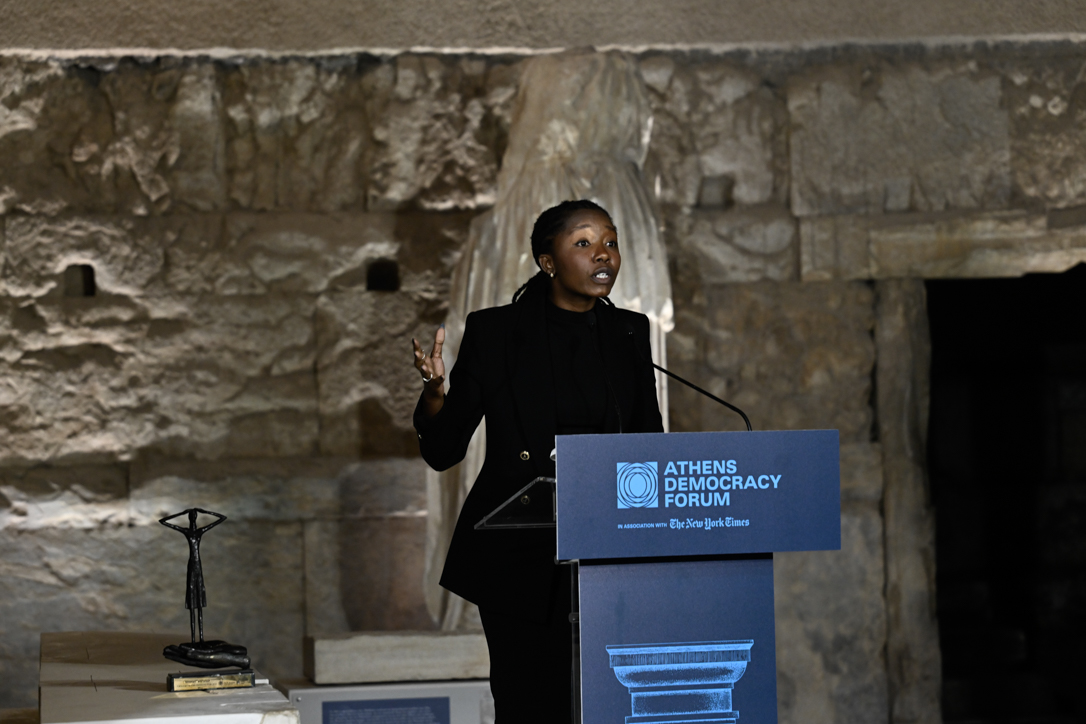Online gender-based political violence in Kenya: The road towards a code of conduct for digital behaviour
At a two-day multistakeholder workshop hosted by the Kofi Annan Foundation and the Centre for Multiparty Democracy (CMD-Kenya) in Nairobi on the 8th and 9th of November 2021, election stakeholders explored practical solutions to some of the challenges posed by digital technologies in Kenya. A key concern emerging from the workshop was the harmful impact of online gender-based political violence on Kenyan women. Karen Zamberia, Elections and Democracy Programme Officer at the Kofi Annan Foundation, shares her thoughts on the topic and what a code of conduct for digital behaviour could look like.
“We have to make sure that women get past their fears of politics.”
– Former President Ellen Johnson Sirleaf at the 2021 KAPS Forum
During the workshop ‘Safeguarding the Digital Space Ahead of the 2022 Kenyan Election’s, participants reiterated that in the absence of gatekeeping measures that can ensure online content is harmless before being released into the digital sphere, online platforms become the breeding ground for online violence that at times translates to physical violence offline.
The advent of social media and various other digital technologies brought new hope that Kenyan women would finally be able to circumvent some of the obstacles that hamper their participation in the governance of their country in their physical environment. The digital sphere had, and still has, the potential to empower women who want to participate in political and electoral processes. In reality, digital technologies have transformed many forms of gender-based violence into something that can be perpetrated online, across distance and borders without physical contact.
Online violence – as harmful as offline violence
A dangerous myth in Kenya is that online gender-based violence is not ‘real’ violence because it is not physical. In reality, online gender-based violence is just as destructive as offline violence. Some malicious ways in which the digital space is used, mainly during elections, include: doxing, trolling, cyberstalking, instigation to violence, blackmail, trolling, hate speech, humiliation, discrimination, defamation, identity theft and hacking, and sexual objectification.
The objective of the perpetrators of online gender-based political violence is to silence women (i.e female political candidates, activists, and journalists) in both online and offline public spaces and ultimately to discourage them from participating in political life. Perpetrators of online gender-based political violence can be freelancers and consultants hired to attack an individual at a price, as well as political party members and their supporters. A recent study on sexism and violence against women in African parliaments by the Interparliamentary Union (IPU) and the African Parliamentary Union (APU) revealed that at least 42% of women parliamentarians had received death threats, rape threats, or threats of beating or abduction, online. Furthermore, the women reported that the primary perpetrators of such violence were their male counterparts from rival political parties, followed closely by male colleagues from the same party.
…at least 42% of women parliamentarians had received death threats, rape threats, or threats of beating or abduction, online.
The digital world: A man’s world?
The patriarchal nature of Kenyan society affects how people behave in the digital space since the public sphere is widely perceived to be a man’s domain. The experiences of gender-based political violence online are commonplace for female political aspirants in Kenya, where the digital space becomes the battleground for patriarchal resistance to change. When asked in an interview whether her membership to a political party made her vulnerable to online bullying, Ruth Bolo, a member of the KANU Party, stated that she thought that ‘just by nature that I am in politics, it is like there is an unwritten rule that any woman in politics HAS to be cyberbullied.’ She expressed how Kenyan society appears to have accepted this phenomenon, coining terms like ‘Siasa siyo kanisa’ (politics is not church).
‘… it is like there is an unwritten rule that any woman in politics HAS to be cyberbullied.’
– Ruth Bolo
Victim-blaming
Women who dare to challenge the structural defects of the patriarchal system in Kenya then face punishment for their actions. More often than not, their arguments online are not judged on their merits but are based on personal details (false or not) that perpetrators find and then use to attack them, intending to humiliate their targets into submission publicly. This online violence often means that Kenyan women avoid exercising their civic rights to engage in political debate and are discouraged from seeking political or other public positions. Some women choose to react to online attackers, who at times take advantage of their targets’ online platform to gain mileage. Others choose not to respond. The onus then is put on the victim of the online violence to ignore the attacks and somehow find ways to protect their own mental health.
Online misbehaviour must result in repercussions
Victims of online gender-based violence rarely report their cases. Moreover, of the cases reported, very few are pursued. This problem is compounded by an absence of adequate policy and legal regulations dedicated to addressing such offences in the digital realm. Indeed, through the Computer Misuse and Cybercrimes Act and the National Cohesion and Integration Act, the Kenyan government criminalises the spread of disinformation and hate speech. It also appears intent on enforcing these laws in the lead up to the general elections in 2022. However, the need for political goodwill is paramount in ensuring that there will be significant repercussions for misbehaviour online.
A digital code of conduct is vital
The Kenyan Constitution enshrines public participation as a key value, and this value should be extended to attempts to develop online rules of engagement. Therefore, a digital code of conduct addressing gender-based political violence is vital to secure a healthy online ecosystem in Kenya. The overall aim of these codes of conduct would be to enhance Kenyan women’s democratic rights to engage in political and electoral processes and help those who have hesitated to participate and those who have left to return to the digital society and exercise their constitutionally mandated rights.
Any digital code of conduct should be the product of robust public participation involving all administrative levels (county and ward). Political parties, political candidates, technology companies and civil society organisations would all have a role in their development. In the coming months, the Kofi Annan Foundation and Centre for Multiparty Democracy (CMD Kenya) are working with all relevant stakeholders to help facilitate the development of a gender-sensitive digital pledge contributing to a safer digital space for women ahead of Kenya’s 2022 election.
Violence against women in politics is present in many regions and countries beyond Kenya. Find out more in our extensive report ‘Eliminating Violence Against Women in Politics‘
Find out more about how we support elections and democracy >



